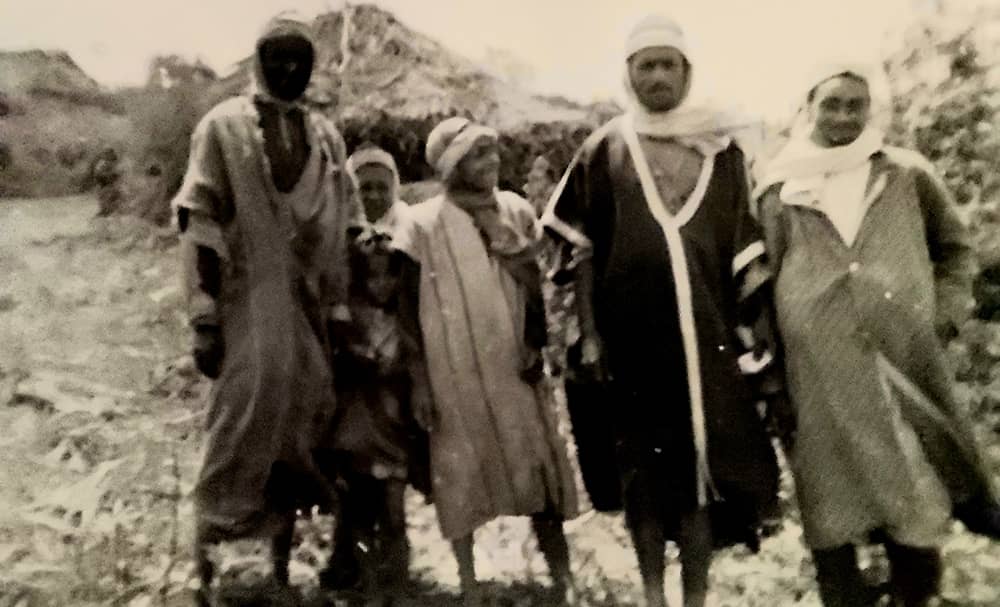
French Morocco felt nothing like home. The native Arabs’ dusty white robes and head wraps were picturesque, but the men’s piercing glares seemed ominous. Soldiers who’d survived the 1942 invasion of North Africa didn’t know what to make of them.
Horse-drawn vehicles filled the streets of Port Lyautey where my father’s medical company had landed. A stench hung in the air. Muslim women kept their faces covered, while crowds of Arab children followed the soldiers everywhere, begging for cigarettes, candy and chewing gum. Many were covered with sores. Here and there, a Muslim knelt and prayed in the open, speaking aloud and gesturing.
Yet the nearby oceanfront town of Medhia looked like pages in a tourist book. Located 90 miles north of Casablanca, its wealthier neighborhoods had modern architecture, wide streets, and a cosmopolitan population that included American, British, French and Arab soldiers and sailors. Spacious vacation homes lined sandy beaches.
My father, a trained surgical technician, served in the 9th Infantry Division’s medical clearing company. Its doctors weren’t supposed to perform major surgery, but in its three months in Mehdia they did just that on more than 500 men. Many patients were too sick to be transported to the nearest full-fledged hospital 28 miles away. The medics also treated hundreds more for malaria, flu, venereal disease, cysts, hemorrhoids, appendicitis, accidental wounds and more.
The medics aimed to provide the best care, no matter who the patient. One day in early January, a major arrived with a slight bout of malaria. He immediately demanded a private room and bath. “We have neither and he got neither,” my father wrote in his journal. “He was placed with the rest of the boys in a ward. No attempt is ever made to segregate officers from the enlisted men. They are placed wherever there is an empty bed, whether they like it or not.”
In their off-duty hours, the medics went into town to explore neighborhoods, talk with locals and join their infantry friends for beer. On warm days, they swam in the sea. They played softball and football, wrote letters home, watched American movies in local French theaters. But it never felt like home.
In early February of 1943 – seventy-nine years ago this month – the medics finally received orders to move to the next battleground. Rumor had it that they were headed to Tunisia.
The medics crowded into box cars that rattled eastward toward Tlemcen. Along the way, the train traveled through prairies that reminded my father of parts of Texas, then passed Arab villages, snow-capped Atlas Mountains, bleak terrain and even lush irrigated farmland. At Tlemcen, the medics set up surgery for several days before climbing into trucks for the final leg of their trip.
Destination: The front lines in Bizerte, Tunisia. The rumor mill was right.
My historical novel, SECRET BATTLES, tells the fictionalized story of the Ninth’s medical clearing company and life back home in America during the war. Inspired by my mother’s and father’s wartime experiences, it is now available on Amazon I softcover and Kindle format.
